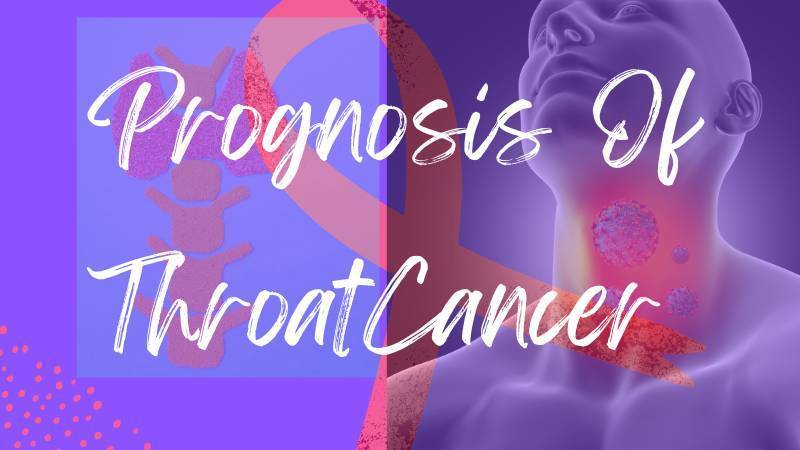“Living with throat cancer: How Far Can You Go Without Treatment?”
WHAT IS CANCER?
Cancer is a group of diseases characterized by the uncontrolled growth and spread of abnormal cells. If left untreated, these cells can invade nearby tissues and organs and spread to other body parts through the bloodstream and lymph system.
There are many types of cancer, each with its own symptoms, causes, and treatments. Some common forms of cancer include breast cancer, lung cancer, prostate cancer, and skin cancer.
THROAT CANCER
Throat cancer is cancer that develops in the throat, also known as the pharynx. The pharynx is a hollow tube that starts behind the nose and goes down to the oesophagus.
There are different types of throat cancer, including oropharyngeal cancer, which develops in the back of the throat, and laryngeal cancer, which develops in the voice box.
Symptoms of throat cancer can include a persistent sore throat, hoarseness, difficulty swallowing, and a lump in the neck. Risk factors for throat cancer include smoking, heavy alcohol use, and infection with the human papillomavirus (HPV).
Treatment options for throat cancer can include surgery, radiation therapy, and chemotherapy.
SYMPTOMS OF THROAT CANCER
Symptoms of throat cancer can include:
- Persistent sore throat
- Hoarseness or changes in the voice
- Difficulty swallowing (dysphagia)
- Pain or discomfort when swallowing
- A lump or mass in the neck
- Ear pain
- Unexplained weight loss
- Fatigue
- A chronic cough
- Blood in saliva or phlegm
- Bad breath
- Swelling of the jaw or face
It’s important to note that many of these symptoms can also be caused by other, less severe conditions. However, if you have any of these symptoms that persist for more than two weeks, you must see a doctor for an evaluation.
EARLY PRECAUTION FOR THROAT CANCER
Some early precautions to help prevent throat cancer include:
- Quitting smoking: Smoking is the leading cause of throat cancer, and quitting can greatly reduce the risk.
- Limiting alcohol consumption: Heavy alcohol use can also increase the risk of throat cancer.
- Practising safe sex: Infection with the human papillomavirus (HPV) can increase the risk of throat cancer, so using condoms and getting vaccinated against HPV can help reduce the risk.
- Eating a healthy diet: Eating a diet rich in fruits and vegetables may help to reduce the risk of throat cancer.
- Awareness of symptoms: Knowing the signs of throat cancer, such as a persistent sore throat or hoarseness, and seeking medical attention if they occur.
- Regular check-ups: Regular check-ups with a doctor, especially if you have risk factors for throat cancer, can help detect any abnormalities early on.
It’s important to note that these precautions can also help prevent other types of cancer and promote overall health. It’s always best to consult a doctor for personalized advice based on your health history.
HOW LONG CAN YOU SURVIVE WITH THROAT CANCER?
Living with throat cancer without treatment is difficult, but it is possible. While the prognosis for throat cancer is often poor, there are cases of people living for years with the disease.
The survival rate for throat cancer can vary depending on several factors, including the cancer stage at the time of diagnosis, the type of cancer, and the patient’s overall health.
According to the American Cancer Society, the 5-year relative survival rate for throat cancer is about 63%. This means about 63% of people diagnosed with throat cancer are alive 5 years after diagnosis. Survival rates are generally higher for people with earlier-stage cancers.
One example is a man from the United Kingdom diagnosed with throat cancer in 2009. He chose not to pursue any treatment and instead focused on lifestyle changes, such as eating a healthy diet and exercising regularly.
He also took supplements and herbs to help boost his immune system. After five years, he was still alive and cancer-free.
Another example is a woman from the United States diagnosed with throat cancer in 2011. She chose to forgo traditional treatments and instead focused on holistic approaches, such as meditation, yoga, and acupuncture.
She also changed her diet to include more fruits and vegetables and took supplements to help boost her immune system. After seven years, she was still alive and cancer-free.
These stories are inspiring examples of how living with throat cancer without treatment is possible. While the prognosis for throat cancer is often poor, it is possible to live for years with the disease if you make lifestyle changes and focus on holistic approaches.
It is important to remember that everyone’s journey is different and that finding the best approach for you is essential. Also, the survival rates are estimates and can’t predict what will happen in an individual case.
Treatment options such as surgery, radiation therapy, and chemotherapy have improved over the years, and with early detection, the survival rate is higher.
It’s always best to consult with a doctor to better understand the specific situation and prognosis.
Q&A
Q What is the prognosis of throat cancer?
Unfortunately, it is impossible to answer this question with any certainty. The prognosis for throat cancer depends on various factors, including the type and stage of cancer, the patient’s age and overall health, and the treatments used.
Without treatment, cancer may progress quickly and lead to death within a few months. The prognosis can vary greatly with treatment, and some patients may live for many years.
Conclusion
Without treatment, the prognosis for throat cancer is poor. Most people with throat cancer will not survive more than a few months. Even with treatment, the average survival rate is only about five years.
Therefore, it is essential to seek medical attention as soon as possible if you have any symptoms of throat cancer. Early diagnosis and treatment can significantly improve the chances of survival.






